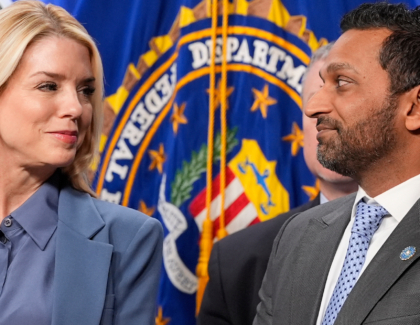Sign up for the daily CJR newsletter.
In January, we brought you the story of The Billings Gazette, which got a tip about potential mishandling of public money at a Montana landfill, followed up by filing a public records request—and found itself sued by the city.
Suing a newspaper simply for asking questions was a notable legal maneuver, but it was also in some sense a nuanced one. The city’s argument leaned on a constitutional provision in Montana that affords citizens a right to privacy. The city argued that releasing the records to The Gazette might expose it to lawsuits from employees who argued the disclosure violated their privacy rights. In their lawsuit, city officials asked a state judge to determine which records the city should release.
Long story short, the judge didn’t buy the city’s argument.
In late January, according to the Gazette, Yellowstone County District Judge Mike Moses ruled the city had withheld public information and had improperly sued the newspaper when it asked the court to assume responsibility for deciding which records should be disclosed. He ordered the city to cough up more than 1,000 pages of documents. The city also agreed to pay about $12,000 in attorneys’ fees related to the case.
In the ensuing months, documents trickled in from the city in batches. And on Sunday, nearly a year after getting its initial tip about possible wrongdoing, the Gazette was able to tell its readers what actually went down at the city landfill. From the front-page story, “Missing money scheme avoided detection by city of Billings for years”:
Nearly 1,200 pages of documents, originally withheld from the public, but later ordered released, shed light on a system of taking cash from the city’s recycling program and channeling the money into coffee, food, kitchen supplies and personal use. City officials estimate more than $12,000 was misused.
None of the money was recovered.
In the wake of an investigation by the city and the local police, one employee resigned, and no criminal charges were filed. It’s not the most egregious case of waste or abuse in government, perhaps. But it’s a story that would have likely gone unreported had The Gazette not fought for the information—and it’s good to see the paper prevail on the open-records front. Also of note: The city had to pay about the same amount of money to cover the newspaper’s court costs as the officials it investigated mishandled at the dump.
City attorney John “Kelly” Addy, who litigated the case against the paper, was not authorized to comment on the record before this story was published.
I caught up with Gazette editor Darrell Ehrlick, who filed the initial open records request and co-wrote Sunday’s story, to talk about the legal battle and the reporting. The paper, he told me, could have put out stories as documents came in following the paper’s January court victory, but instead chose to wait until it could present a complete picture of what had happened.
“I have to give a lot of credit to my publisher Mike Gulledge who allowed our resources to be spent fighting this and I think it shows [our] role,” Ehrlick said. “No one else had reported on this story.”
He also characterized the city’s legal response as a “SLAPP” suit, or a “strategic lawsuit against public participation.” Montana is one of several states without anti-SLAPP legislation that seeks to discourage such suits.
“Montana actually is making some good in-roads with the legislature in session when it comes to suing government officials for public data, but I still think stronger anti-SLAPP laws could be adopted by the state,” he says. “It takes a lot of money to fight these cases, and there’s nothing that would necessarily preclude the city or any other government entity from going down this road again.”
Nothing but the example set by the judge’s ruling here, anyway—and here’s to that.
Has America ever needed a media defender more than now? Help us by joining CJR today.






